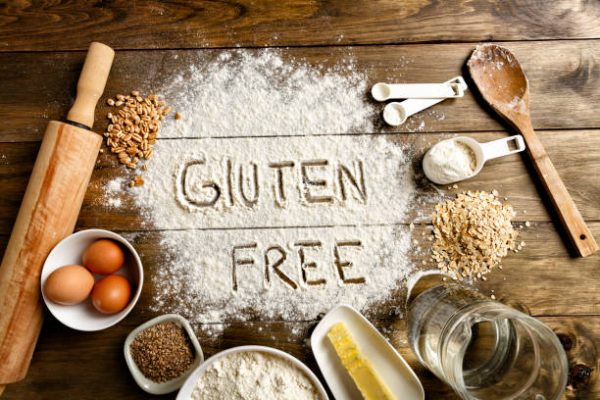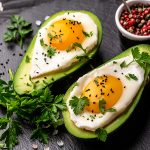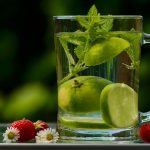In these days of health consciousness, food and beverage manufacturers will go to great lengths to convince you that their products will make your life healthier.
You see it every time you go to the store. Marketers place starbursts on their products claiming they are sugar free, low fat, reduced sodium, cholesterol free, gluten free and a whole lot more.
The truth is that, regardless of these statements, the foods may not be any healthier than their full-bodied counterparts. Still, using these terms gives the foods something called a health halo; or the halo effect. You automatically think they are going to benefit your health in some way without having any proof of it.
In other words, it’s often a form of manipulation that makes you think you’re getting something a lot healthier than it really is.
For example, “plant-based” is a great term. I use it all of the time to encourage my patients to eat more whole fruits, vegetables, beans, nuts and seeds.
But what happens when you put the words “plant-based” together with “meat?”
You’ve got plant-based meat! And it automatically produces the halo effect. But by no means does it mean plant-based meats are good for you.
The fact is, these foods are nothing more than junk food. They aren’t brimming with whole plant foods or veggies. There are no beans, greens, nuts, seeds or carrots in them.
You are much more likely to find words like soy or pea protein isolate, cultured dextrose, methylcellulose, calcium alginate, xanthan gum and other undecipherable crap on the ingredient list. And don’t forget that yummy disodium inosinate that frequently provides the savory umami flavoring!
This pretty much meets the definition of an ultra-processed food – defined as “foods made from substances extracted from real foods, synthesized to add flavor… and engineered to make fake foods taste and feel like they’ve never been processed at all.”
If you think about it for a minute, I could honestly make the case that potato chips are a plant-based food. And they are! But would you choose to eat a bag of potato chips over a healthy dinner?
So never assume that something that sounds healthy really is healthy. Check your labels or, better yet, opt for whole, natural plant-based foods that you buy in the produce department.
The Truth about Whole Grains
Eating more whole grain breads, muffins and cereals sounds really healthy, doesn’t it?
But guess what? A lot of those whole grain foods are only telling half-truths and counting on the halo effect to catch your attention.
Take the phrase “Made with Whole Grains”. What does that really mean?
Well, it means that there is some whole grain in the product, but you have no idea how much. It could be the tiniest amount – just enough to be able to say it on the label. In reality, the product is likely to be mostly refined flour, which doesn’t have either the fiber or the nutrition you’re looking for from a whole grain.
“Multigrain” foods sound super healthy. “Wow! I can get a bunch of fiber and nutrition from all sorts of different grains!”
Not exactly. There is nothing that says multigrains are whole grains. It could be refined grains mixed with whole grains. Or there might not be a single whole grain in it. It just has to contain more than one type of grain, and they could all be refined.
And there is something extremely appealing about the word “Stoneground” – like it’s some sort of natural grinding process of a whole grain. Well, yes and no. Maybe the stone grinding started with a whole grain. But it doesn’t mean that the bran and germ weren’t removed later, turning it into plain old processed flour.
The fact is, the grains we eat today are not the same as they were ten thousand, eight thousand, five-hundred, or even one-hundred years ago. Today’s whole grains aren’t anything like nature intended and your body simply isn’t designed for them.
Still, if you feel that grains are a necessity in your life, I recommended sticking with gluten-free grains such as millet, quinoa and buckwheat.
Probiotic Soda? Let’s Get Real!
These days, anything that supports gut health automatically has a health halo attached to it. And low-calorie prebiotic sodas that claim to improve gut health, digestion and immunity are suddenly a hot item. They are being called “functional beverages.”
Basically, the sodas are made of carbonated water, fruit juices and flavorings along with a little stevia or cane sugar and added prebiotic plant fibers. So most of them are probably healthier than a regular soft drink, as long as the brand doesn’t contain a bunch of artificial sweeteners, refined sugar or HFCS.
But should you use them as a short-cut to get more prebiotic foods in your diet?
Of course not!
First off, there is nothing showing prebiotic drinks with added fibers have any effect at all on your gut health. There may, in fact, be little or no noticeable health benefit. And they are expensive! So you could be paying a lot of money for nothing more than a hyped-up claim.
Secondly, you are always going to be better off getting your prebiotic fibers from natural food sources.
Fruits like bananas, grapefruit, apples and nectarines all contain the type of fiber you want. Cruciferous veggies, squash, beets and mushrooms can go on the list. And then you have almonds, pistachios, cashews and other nuts, plus the gluten-free grains I mentioned earlier.
And honestly, if you want a fizzy beverage that has scientifically proven benefits to your gut health, you can’t go wrong with kombucha. It’s a truly functional beverage that is sweet, tangy and delicious.
Be smart. Be savvy. Read labels. Don’t let a single healthy aspect of a food – a health halo – make you think it is healthier than it actually is.
SOURCES:
Kitwetcharoen H, Phung LT, Klanrit P, Thanonkeo S, Tippayawat P, Yamada M, Thanonkeo P. Kombucha Healthy Drink—Recent Advances in Production, Chemical Composition and Health Benefits. Fermentation. 2023; 9(1):48.




